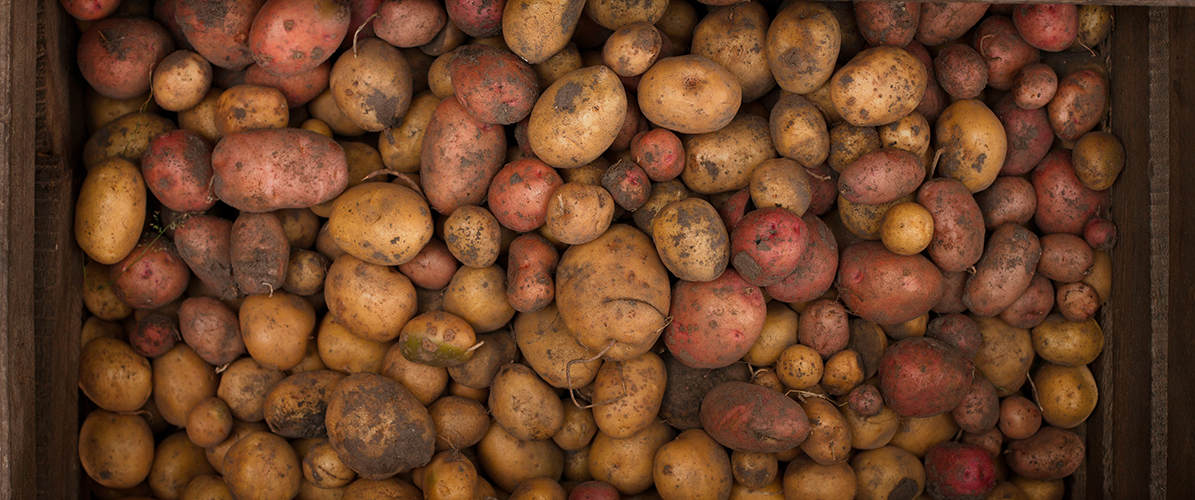Feedback sought on Eastern Bloc approach to tomato potato psyllid detection
The Plant Health Committee (PHC) and industries affected by the tomato potato psyllid (TPP) have been in discussion to determine the movement conditions for the potential arrival of TPP in the eastern states of Australia.
The PHC has requested feedback on the proposed movement conditions, which are provided below. In particular, the PHC is interested in receiving feedback regarding whether or not the proposed conditions are workable for industry stakeholders to ensure business continuity with minimal impact.
Agreement on trade and quarantine arrangements for processing and ware potatoes (‘Step 1’, below) will allow the seed potato industry to continue to finalise and agree on a recommended suite of measures (‘Step 2’) without holding up the processing and ware sectors – noting that all measures need to mitigate the risk of spread of CLso and to enable certified seed potatoes produced under an approved seed certification scheme to move freely from a TPP-infested area into a TPP-free area without further restriction.
If you have feedback, you can contact your state’s Chief Plant Health Manager or provide your comments to AUSVEG National TPP Coordinator Alan Nankivell on 0428 260 430 or at alan.nankivell@ausveg.com.au.
Please return feedback by close of business on Friday 18 May.
| Proposed movement conditions | ||||
|---|---|---|---|---|
| Step 1: Acceptance of trade and quarantine arrangements for processing and ware potatoes | ||||
|
||||
| Host commodity type | Treatment | Trade and quarantine | Comment | |
| Potatoes | For processing | Washed or brushed free of green leafy material | Free movement within the ‘Eastern bloc’ | Industry to do some engagement/communication on the risks if growers were sourcing and planting potatoes sold for consumption as seed in relation to spreading CLso and introducing it to their properties.
NOTE: To limit risks posed by CLso, Victorian businesses receiving potatoes will require a compliance agreement to ensure potatoes are not being sold for planting. |
| Fresh/ware | Washed or brushed free of green leafy material | Free movement within the ‘Eastern bloc’ | Industry to do some engagement/communication on the risks if growers were sourcing and planting potatoes sold for consumption as seed in relation to spreading CLso and introducing it to their properties.
NOTE: To limit risks posed by CLso, Victorian businesses receiving potatoes will require a compliance agreement to ensure potatoes are not being sold for planting. |
|
| Tomato | Processing | TPP risk mitigation measures in line with on-going business is adopted on a day-today business | As per negotiations with Vic/NSW/processing tomatoes | As per negotiations with Vic/NSW/processing tomatoes |
| Step 2: Acceptance of TPP/CLso trade and quarantine arrangements for seed potato | |||
|---|---|---|---|
|
|||
| Host commodity type | Treatment | Trade and quarantine | Comment |
| Potatoes | Seed | Risk mitigation measures are adopted in the current seed certification scheme | Regulated movement permitted of certified seed potatoes produced under an approved seed certification scheme to move freely from a TPP-infested area into a TPP-free area without further restriction |
| Step 3: Acceptance of TPP/CLso trade and quarantine arrangements for tomatoes, vegetables and seedlings | |||
|---|---|---|---|
|
|||
| Host commodity type | Treatment | Trade and quarantine | Comment |
| Fresh tomatoes | As per ICA26 or as per current agreement with WA (ie any appropriate insecticide) | Regulated movement permitted under ICA certification | N/A |
| Tomato seedlings | As per ICA26 (for TPP only)
Property freedom (TPP/CLso) |
Regulated movement of certified product permitted under ICA certification or Biosecure HACCP | ICA26 for TPP only. (Insecticide treatment is not appropriate for CLso)
For TPP/CLso – use property freedom |
| Fresh vegetables | As per ICA 26 | Regulated movement permitted under ICA certification | N/A |
| Vegetable seedlings (non CLso hosts) | As per ICA 26 | Regulated movement of certified product permitted under ICA certification or Biosecure HACCP | N/A |
This post appeared in the AUSVEG Weekly Update published 8 May 2018. Subscribe to the Update using our online form to receive the latest industry news in your inbox every week!
| The strategic levy investment project MT16018 – Tomato potato pysllid (TPP) National Program Coordinator is funded by potato processing, fresh potato and vegetable research and development levies and contributions from the Australian Government. Hort Innovation is the grower-owned, not-for-profit research and development corporation for Australian horticulture. |  |

